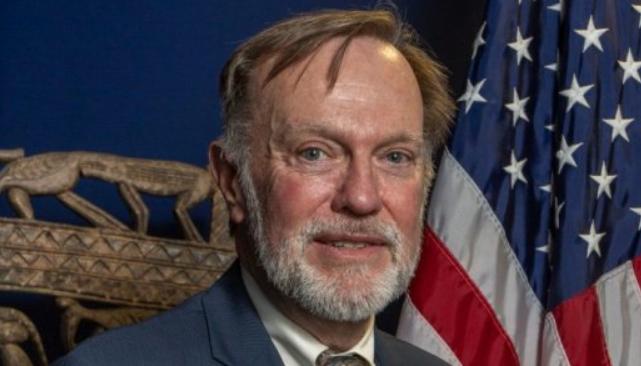Africa-Press – Lesotho. Donald Trump’s ‘Mr Africa’ is trying to push back against a slump in US-Africa trade, and counter perceptions that Washington is obsessed with Chinese influence on the continent.
“How to reinvigorate US-Africa trade?” — That was the question at the 18th annual African Growth and Opportunity Act (AGOA) Forum in Abidjan this month.
US President Bill Clinton launched AGOA in 2000, creating a duty-free regime to accelerate trade on 6,500 products, including petroleum, agricultural, textile and handicrafts. The Trump administration is acknowledging the problem.
The trade balance has always been largely in Africa’s favour, but the level of trade remains “low”, said Constance Hamilton, deputy US trade representative for Africa, during a press briefing in Abidjan.
Coupled with low trade, there is also the question of diversification. Is AGOA compatible with President Donald Trump’s “America first” agenda? Tibor Nagy: “America first” does not mean “America only”.
It is up to each leader to raise his country as high as possible. Thus, within the framework of AGOA, it is up to each leader to derive the best benefits, particularly in terms of increased trade and job creation.
The US President has also expressed his preference for bilateral agreements. However, we are here in a multilateral framework. . . The fact that President Trump is considered to be more favourable to bilateral agreements does not indicate that he is hostile to agreements of any other nature.
The trade balance is largely profitable for Africa. Isn’t that a problem for the United States? The deficit in our trade with African countries is largely offset by our trade with other countries around the world.
This allows us to maintain the overall balance of our trade. Moreover, our wish remains that African countries export more finished products to the United States because only the industrial sector is truly a source of employment.
What has been the concrete effect of AGOA on the volume of trade with African countries? AGOA has made it possible to develop trade between the two parties, particularly for African countries exporting agricultural commodities and those producing oil.
In 2016, the continent’s countries exported $2.4bn worth of agricultural products to the United States: 20% of these products had benefited from AGOA and the Generalised System of Preferences(GSP).
Countries such as Côte d’Ivoire, Ghana, South Africa, and Madagascar have been able to boost their exports to the United States. In 2018, 40 countries on the continent were eligible for AGOA, including 27 for GSP.
These preferential conditions have allowed many of them to increase both the volumes exported to the United States and the number of jobs in this sector. This has enabled several countries to make a name for themselves in niche markets, such as the textile sector.
In Lesotho, for example, the textile sector, which was still in its infancy before the advent of AGOA, now employs more than 35,000 people, a majority of them are women. In 2018, Rwanda was the target of retaliation, just as Uganda was in 2015, under AGOA.
Doesn’t it also pose a threat to Africa’s mostly fragile industrial sector? Doesn’t an emancipation of the African industrial sector threaten employment in some US sectors?
Not necessarily. It is up to each country to focus on those areas where it has a comparative advantage, and where it can generate the most jobs. In addition, the US is now almost fully employed, with an unemployment rate of about 3.5%.
As a result, no jobs appear to be at risk in the US. I would also like to stress that the global economy has undergone profound changes in recent years.
Being competitive these days does not only mean making things. And, Africa has much potential, such as services and tourism, to name but a few areas. I am convinced that such sectors will stand out as real sources of prosperity for the continent in the coming years.
Despite the launch of AGOA in 2000, the US is unable to compete with its main competitors, the European Union – which has deployed Economic Partnership Agreements – and China.
Do you regret it? AGOA gives Africa the latitude to develop exchanges with other partners as long as it benefits. It is a programme, like so many others, initiated by the United States to offer opportunities to other economies.
It offers Africa the opportunity to freely choose with whom it intends to trade, in its best interests, and the United States intends to offer it the best opportunities.
China, in particular, is now Africa’s largest trading partner. What is the United States’ strategy to reverse this trend? One of the Trump administration’s strategies is to offer Africa the best opportunities for sustainable prosperity.
This is as much in the interest of the US private sector as it is in the interest of African industry, but also of African youth. The goal is not so much to counter China as to make the United States Africa’s leading economic and trading partner.
For More News And Analysis About Lesotho Follow Africa-Press






